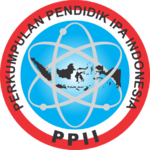EVALUATION OF SENIOR HIGH SCHOOL STUDENTS SCIENTIFIC INQUIRY SKILLS: A PERSPECTIVE FROM PROPOSING ACTION AND INTERPRETING RESULTS
DOI:
https://doi.org/10.26740/jppipa.v5n2.p80-86Keywords:
inquiry-based learning, scientific practice, proposing action, interpreting resultsAbstract
The critical component in science learning today is the students ability to proficiency the scientific inquiry skills. Inquiry skills are the focus in scientific practice today, especially on proposing action and interpreting results. For this purpose, three experimental worksheets on energy topic were designed and developed. Thirty students enrolled in 11th grade in a public senior high school in the Bulungan Regency, North Kalimantan Province participated in this study. This study used qualitative research methods to collect data in accordance with the principles of classroom natural setting. Participants are involved in teaching and learning process activities that are taught by physics teachers in the schools. The results of the students written responses were obtained from the experimental worksheet, as well as field note data during observations during the teaching-learning process. The results of the study show that in the category of proposing action and interpreting results the students abilities are still low. Proficiency in content knowledge according to substantive concepts has a strong effect on students scientific inquiry skills. The implication of this study is that it emphasizes the formation of scientific culture classrooms to be able to promote and bring science closer to the students.
References
Downloads
Published
How to Cite
Issue
Section
 Abstract views: 915
,
Abstract views: 915
, PDF Downloads: 541
PDF Downloads: 541











